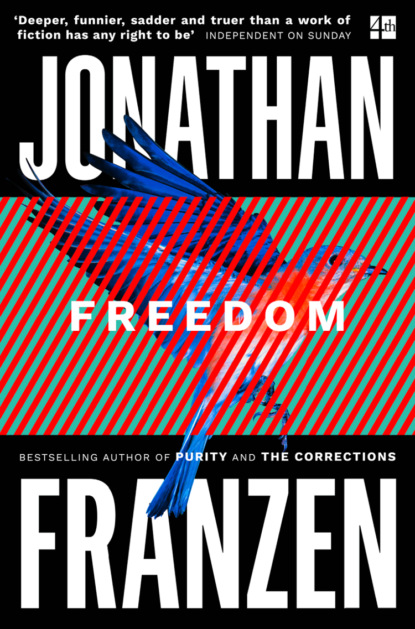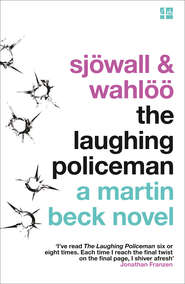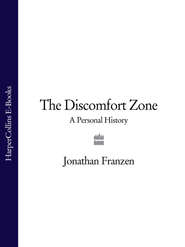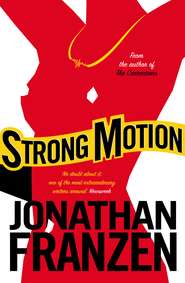По всем вопросам обращайтесь на: info@litportal.ru
(©) 2003-2024.
✖
Freedom
Настройки чтения
Размер шрифта
Высота строк
Поля
He nodded.
“I’m sorry I went to Chicago with Richard. It was my idea, not his. You should blame me, not him. But right now? You’re making me feel kind of shitty.”
He nodded and stood up.
“Kiss me good night?” she said.
He did, and it was better than fighting, so much better that soon they were under the covers and turning off the lamp. Daylight was leaking in around the curtains—dawn in May came early in the north country.
“I know essentially nothing about sex,” Walter confessed.
“Oh, well,” she said, “it’s not very complicated.”
And so began the happiest years of their life. For Walter, especially, it was a very giddy time. He took possession of the girl he wanted, the girl who could have gone with Richard but had chosen him instead, and then, three days later, at the Lutheran hospital, his lifelong struggle against his father ended with his father’s death. (To be dead is to be as beaten as a dad can get.) Patty was with Walter and Dorothy at the hospital that morning, and was moved by their tears to do some crying of her own, and it felt to her, as they drove back to the motel in near-silence, that she was already practically married.
In the motel parking lot, after Dorothy had gone inside to lie down, Patty watched Walter do a strange thing. He sprinted from one end of the lot to the other, leaping as he ran, bouncing on his toes before he turned around and ran some more. It was a glorious clear morning, with a steady strong breeze from the north, the pine trees along the creek literally whispering. At the end of one of his sprints, Walter hopped up and down and then turned away from Patty and started running down Route 73, way down around the bend and out of sight, and was gone for an hour.
That next afternoon, in Room 21, in broad daylight, with the windows open and the faded curtains billowing, they laughed and cried and fucked with a joy whose gravity and innocence it fairly wrecks the autobiographer to think back on, and cried some more and fucked some more and lay next to each other with sweating bodies and full hearts and listened to the sighing of the pines. Patty felt like she’d taken some powerful drug that wasn’t wearing off, or like she’d fallen into an incredibly vivid dream that she wasn’t waking up from, except that she was fully aware, from second to second to second, that it wasn’t a drug or a dream but just life happening to her, a life with only a present and no past, a romance unlike any romance she’d imagined. Because Room 21! How could she have imagined Room 21? It was such a sweetly clean old-fashioned room, and Walter such a sweetly clean old-fashioned person. And she was 21 and could feel her 21ness in the young, clean, strong wind that was blowing down from Canada. Her little taste of eternity.
More than four hundred people came out for his dad’s funeral. On Gene’s behalf, without even having known him, Patty was proud of the huge turnout. (It helps to die early if you want a big funeral.) Gene had been a hospitable guy who liked to fish and hunt and hang out with his buddies, most of them veterans, and who’d had the misfortune of being alcoholic and poorly educated and married to a person who invested her hopes and dreams and best love in their middle son, rather than in him. Walter would never forgive Gene for having worked Dorothy so hard at the motel, but frankly, in the autobiographer’s opinion, although Dorothy was incredibly sweet, she was also definitely one of those martyr types. The after-funeral reception, in a Lutheran function hall, was Patty’s totalimmersion crash course in Walter’s extended family, a festival of Bundt cake and determination to see the bright side of everything. All five of Dorothy’s living siblings were there, as was Walter’s older brother, newly released from jail, with his trampy-pretty (first) wife and their two little kids, and so was their taciturn younger brother in his Army dress uniform. The only important person missing, really, was Richard.
Walter had called him with the news, of course, though even this had been complicated, since it involved tracking down Richard’s ever-elusive bass player, Herrera, in Minneapolis. Richard had just arrived in Hoboken, New Jersey. After giving Walter his telephonic condolences, he said that he was wiped out financially and sorry he couldn’t make it to the funeral. Walter assured him this was totally fine, and then proceeded for several years to hold it against Richard that he hadn’t made the effort, which was not entirely fair, given that Walter had already secretly been mad at Richard and hadn’t even wanted him at the funeral. But Patty knew better than to be the one to point this out.
When they made their New York trip, a year later, she suggested that Walter look Richard up and spend an afternoon with him, but Walter pointed out that he had twice called Richard in recent months while Richard had not initiated any calls to him. Patty said, “But he’s your best friend,” and Walter said, “No, you’re my best friend,” and Patty said, “Well, then, he’s your best male friend, and you should look him up.” But Walter insisted it had always been like this—that he’d always felt more like the pursuer than the pursued; that there was a kind of brinksmanship between them, a competition not to be the first to blink and show need—and he was sick of it. He said this wasn’t the first time Richard had done his disappearing act. If he still wanted to be friends, Walter said, then maybe, for once, he could trouble himself to do the calling. Though Patty suspected that Richard might still be feeling sheepish about the Chicago episode and trying not to intrude on Walter’s domestic bliss, and that it might therefore behoove Walter to assure him he was still welcome, she again knew better than to push.
Where Eliza imagined a gay thing between Walter and Richard, the autobiographer now sees a sibling thing. Once Walter had outgrown being sat on and punched in the head by his older brother and sitting on his younger brother and punching his head, there was no satisfactory competition to be found in his own family. He’d needed an extra brother to love and hate and compete with. And the eternally tormenting question for Walter, as the autobiographer sees it, was whether Richard was the little brother or the big brother, the fuckup or the hero, the beloved damaged friend or the dangerous rival.
As with Patty, Walter claimed to have loved Richard at first sight. It had happened on his first night at Macalester, after his dad had dropped him off and hurried to get back to Hibbing, where Canadian Club was calling to him from the lounge. Walter had sent Richard a nice letter in the summer, using an address provided by the housing office, but Richard hadn’t written back. On one of the beds in their dorm room was a guitar case, a cardboard carton, and a duffel bag. Walter didn’t see the owner of this minimal luggage until after dinner, at a dorm hall meeting. It was a moment he later described to Patty many times: how, standing in a corner, apart from everybody else, there was a kid he couldn’t take his eyes off, a very tall acned person with a Jewfro and an Iggy Pop T-shirt who looked nothing like the other freshmen and didn’t laugh, didn’t even smile politely, at the jokey orientative spiel their R.A. was giving them. Walter himself had great compassion for people attempting to be funny, and laughed loudly to reward them for their effort, and yet he instantly knew he wanted to be friends with the tall unsmiling person. He hoped this was his roommate, and it was.
Remarkably enough, Richard liked him. It started with the accident of Walter’s having come from the town Bob Dylan grew up in. Back in their room, after the meeting, Richard plied him with questions about Hibbing, what the scene there was like, and whether Walter had personally known any Zimmermans. Walter explained about the motel being several miles outside town, but the motel itself impressed Richard, as did the fact that Walter was a full-scholarship student with an alcoholic dad. Richard said he hadn’t written back to Walter because his own dad had died of lung cancer five weeks earlier. He said that since Bob Dylan was an asshole, the beautifully pure kind of asshole who made a young musician want to be an asshole himself, he’d always imagined that Hibbing was an asshole-filled kind of place. Downy-cheeked Walter, sitting in that dorm room, eagerly listening to his new roommate and trying hard to impress him, was a vivid refutation of this theory.
Already, that first night, Richard made comments about girls which Walter never forgot. He said he was unfavorably impressed with the high percentage of overweight chicks at Macalester. He said he’d spent the afternoon walking the surrounding streets, trying to figure out where the townie chicks hung out. He said he’d been astonished by how many people had smiled and said hello to him. Even the good-looking chicks had smiled and said hi. Was it like this in Hibbing, too? He said that, at his dad’s funeral, he’d gotten to know a very hot cousin of his who was unfortunately only thirteen and was now sending him letters about her adventures in masturbation. Although Walter never needed much of a push in the direction of solicitude toward women, the autobiographer can’t help thinking about the polarizing specialization of achievement that comes with sibling rivalry, and wondering if Richard’s obsession with scoring might have given Walter an additional incentive not to compete on that particular turf.
Important fact: Richard had no relationship with his mom. She hadn’t even come to his dad’s funeral. By Richard’s own account to Patty (much later), the mom was an unstable person who eventually became a religious nut but not before making life hellish for the guy who’d got her pregnant at nineteen. Richard’s dad had been a saxophone player and bohemian in Greenwich Village. The mom was a tall, rebellious WASP girl of good family and bad self-control. After four raucous years of drinking and serial infidelity, she stuck Mr. Katz with the job of raising their son (first in the Village, later in Yonkers) while she went off to California and found Jesus and brought forth four more kids. Mr. Katz quit playing music but not, alas, drinking. He ended up working for the postal service and never remarrying, and it’s safe to say that his various young girlfriends, in the years before drink fully ruined him, did little to provide the stabilizing maternal presence that Richard needed. One of them robbed their apartment before disappearing; another relieved Richard of his virginity while babysitting him. Soon after that episode, Mr. Katz sent Richard to spend a summer with his stepfamily, but he lasted less than a week with them. On his first day in California, the entire family gathered around him and joined hands to give thanks to God for his safe arrival, and apparently things got only wackier from there.
Walter’s parents, who were merely social churchgoers, opened their home to the tall orphan. Dorothy was especially fond of Richard—may, indeed, have had a demure little Dorothyish thing for him—and encouraged him to spend his vacations in Hibbing. Richard needed little encouragement, having nowhere else to go. He delighted Gene by showing interest in shooting guns and more generally by not being the sort of “hoity-toity” person Gene had been afraid that Walter would take up with, and he impressed Dorothy by pitching in with chores. As previously noted, Richard had a strong (if highly intermittent) wish to be a good person, and he was scrupulously polite to people, like Dorothy, whom he considered Good. His manner with her, as he questioned her about some ordinary casserole she’d made, asking where she’d found the recipe and where a person learned about balanced diets, struck Walter as fake and condescending, since the chances of Richard ever actually buying groceries and making a casserole himself were nil, and since Richard reverted to his ordinary hard self as soon as Dorothy was out of the room. But Walter was in competition with him, and though Walter may not have excelled at picking up townie chicks, the province of listening to women with sincere attentiveness most definitely was his turf, and he guarded it fiercely. The autobiographer thus considers herself more reliable than Walter regarding the authenticity of Richard’s respect for goodness.
What was unquestionably admirable in Richard was his quest to better himself and fill the void created by his lack of parenting. He’d survived childhood by playing music and reading books of his own idiosyncratic choosing, and part of what attracted him to Walter was Walter’s intellect and work ethic. Richard was deeply read in certain areas (French existentialism, Latin American literature), but he had no method, no system, and was genuinely in awe of Walter’s intellectual focus. Though he paid Walter the respect of never treating him with the hyper-politeness he reserved for those he considered Good, he loved hearing Walter’s ideas and pressing him to explain his unusual political convictions.
The autobiographer suspects there was also a perverse competitive advantage for Richard in befriending an uncool kid from the north country. It was a way of setting himself apart from the hipsters at Macalester who came from more privileged backgrounds. Richard disdained these hipsters (including the female ones, though this didn’t preclude fucking them when opportunities arose) with the same intensity as the hipsters themselves disdained people like Walter. The Bob Dylan documentary Don’t Look Back was such a touchstone for both Richard and Walter that Patty eventually rented it and watched it with Walter, one night when the kids were little, so that she could see the famous scene in which Dylan outshone and humiliated the singer Donovan at a party for cool people in London, purely for the pleasure of being an asshole. Though Walter felt sorry for Donovan—and, what’s more, felt bad about himself for not wanting to be more like Dylan and less like Donovan—Patty found the scene thrilling. The breathtaking nakedness of Dylan’s competitiveness! Her feeling was: Let’s face it, victory is very sweet. The scene helped her understand why Richard had preferred to hang out with unmusical Walter, rather than the hipsters.
Вы ознакомились с фрагментом книги.
Приобретайте полный текст книги у нашего партнера:
Приобретайте полный текст книги у нашего партнера:
















